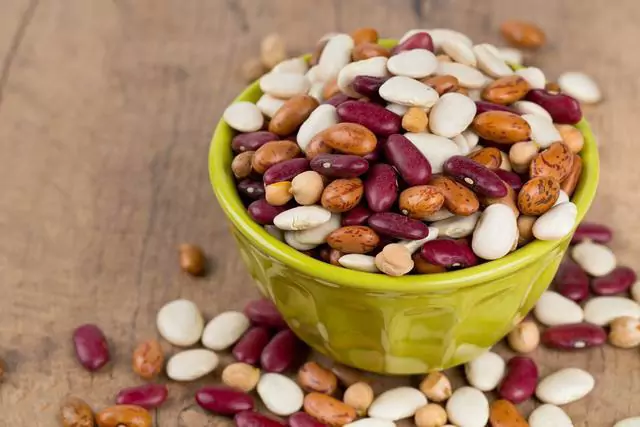Are apples good for dogs? What are the benefits of eating apples for dogs?
2022-06-17
I don't think anyone has ever eaten an apple. Apples are a fruit that is rich in vitamins, crisp, sweet, and sour, and available all year round, so many people like to eat them, and they are almost the most common fruit at home. Just, many dog parents have a bad habit, is what they eat, always like to share a little with the dog, did not check first to see if the dog can eat, the results of the final problem on the self-recrimination regret, it is not worth the loss. Dogs have always been a good friend of humans, many dog lovers will have more than one cute dog. We are in the daily feeding of dogs and foxes is also pay attention to many details, especially the dog's food. Many people will ask if the dog can eat apples? Not only apples and fruit dogs can eat a little but in moderation. The fact is that you can't get a lot of money from the internet.
I. What are the benefits of apples for dogs
Apples contain a water-soluble dietary fiber that helps with gastrointestinal lactation and digestion in dogs, reducing the number of bad bacteria in the gut and helping beneficial bacteria to multiply, reducing diarrhea in pets. At the same time, apple fiber can make pets have a sense of "satiety", reducing the amount of food eaten, thereby reducing the possibility of dog obesity. In addition, it contains malic acid, which is a very good "flavoring agent" to improve the pet's picky mouth.
The nutritional value of apples is very high, each kilogram of pulp contains 15g of sugar, 2g of protein, and a rich variety of vitamins, while apples contain less fat, so dogs can properly eat some apples to supplement nutrition, and will not gain weight.
The pectin, or water-soluble dietary fiber contained in apples, can help dogs digest their intestines, strengthen their stomachs and promote the reproduction of beneficial bacteria in their intestines, so dogs can properly eat some apples for the benefit of their spleen and stomach.
Apples are rich in a variety of vitamins and minerals for the growth and development of dogs. In addition, apples can also act as a flavoring agent to improve your dog's appetite and promote better eating.
Malic and Citric Acid
The reason apples taste tart and sweet is because of the presence of these two substances. The more malic acid and citric acid there are, the sweeter the apple will taste. In addition to enriching the taste, these two substances have many other effects, such as anti-inflammatory and fatigue-relieving effects, as well as preventing calcium oxalate stones from developing in the dog's body and preventing stones from developing in his urinary tract.
Pectin
Apples contain "pectin", a soluble dietary fiber that coagulates when it meets water. Pectin can help your dog's bowel movement and promote digestion, as well as reduce the number of bad bacteria in the intestine and help probiotics to multiply, reducing diarrhea in dogs. Pectin also makes dogs feel full easily, which allows them to eat less and achieve a slimming effect.
Potassium
The potassium in apples promotes urination in dogs, helping them to excrete excess salt from their bodies. It can also lower blood pressure and prevent kidney disease, but it is not good for dogs with their kidney disease and hyperkalemia.
Polyphenols
Apples contain more than a hundred polyphenols, which have antioxidant properties, prevent allergies in dogs, and inhibit the production of cancer cells.

II. The bad things about apples for dogs:
Apples are crisp and sweet to eat, so you should know that they have a high sugar and carbohydrate content. Compared to other fruits, although it is not particularly high, you should not eat too many apples because the hairy god's body is not suited to digest and eat too many carbohydrates.
Residual pesticide concentration
Apples should be known to have a high concentration of pesticide residues (the rests are strawberries and peach), which cannot be washed off with water. If money allows, you can choose organic apples to avoid dogs eating pesticides.
Benefits of apples for dogs.
Calories: 52
Protein: 0.3 grams
Fat: 0.2 g
Carbohydrates: 13.8 grams
Sugar: 10.4 g
Fiber: 2.4 g
Water: 85.6 g
Contains vitamins and minerals
Vitamin C - Also known as ascorbic acid, many fruits such as oranges and kiwis contain nutrients that are important for the function of your dog's body, helping to fight oxidation, moisturize the skin, and also strengthen the immune system.
Potassium - A mineral found in high levels in apples, potassium is important for maintaining a healthy heart.
Multiple Antioxidants
Many chronic diseases (chronic dermatitis, allergies, etc. are common in dogs) are caused by too much oxidative stress in the body. Apples contain several antioxidants that can help combat oxidative stress.
Quercetin - is a nutrient found in many plant foods as well, and according to animal studies, it may help fight inflammation, viruses, cancer, and depression.
Catechin - A natural antioxidant found in apples, commonly found in green tea, and known as a "health food wonder" due to its extremely high levels. In animal studies, catechins have been shown to improve brain and muscle function.
Chlorogenic acid - An antioxidant commonly found in coffee that appears to be linked to lower blood sugar and weight loss.
Stimulates hindgut fermentation
When food enters the dog's body, it arrives in the hindgut and undergoes hindgut fermentation, so you can imagine that the food is left in the hindgut and slowly digested, further absorbing its nutrients. Dog studies have shown that fresh citrus and apples can stimulate hindgut fermentation in dogs after eating. In simple terms, you can imagine it as helping the fur gods digest and absorb the food ( 11 ).
Prevents certain specific cancers
Apples contain vitamin C. In studies, it has been noted that high doses of ascorbic acid (also known as vitamin C) have anti-cancer effects on dog melanoma cell lines.
Maintains neuromuscular, cardiac, and skeletal muscle health
Potassium is the primary sulfonate provided by apples, and studies have shown that potassium is extremely important for maintaining neuromuscular, cardiac, and skeletal muscle health and that deficiency can lead to multiple deficits.
There are some fruits that dogs can eat, such as dogs can eat bananas, because bananas can help the dog's intestinal peristalsis, if the dog is constipated or has diarrhea, you can eat them. Some apples can eat, apples can detoxify, but should not consume too much.
Dogs can also eat avocado because it can ensure that the dog's coat remains shiny. If the dog has allergies, it can eat. Watermelon can replenish water, but you can not eat too much, or the dog will always run the toilet Oh. Oranges and grapefruit are rich in vitamin C, which replenishes energy and helps digestion, and can be eaten by constipated dogs, but not too much.
We have to know some precautions when eating fruit for dogs to avoid dog eating problems. Do not give your dog eat fruit seeds or cores, because the dog is no the way to digest those fruit seeds and cores, not easy for the dog's health.
When feeding your beloved dog fruit, you must remember not to give your dog too much fruit: giving your dog a lot of fruit at once is very likely to cause dog diarrhea, any kind of fruit is. There are also dried fruits to eat less, peanuts, and chestnuts such as eating very fragrant but easy to chew things, but also to control the amount of dog consumption, once too much to eat can also cause indigestion.
Was this article helpful to you?
Other links in this article
Comments

Is a dog's mouth cleaner than a human's? Dogs' mouths need regular cleaning

Can dogs eat beans? Do dogs eat beans for health?

Can dogs eat lemons? Fruits that dogs should not eat more of

Do dogs have nightmares? Are dogs' dreams similar to humans'?

Can dogs eat raw beef? The benefits and drawbacks of beef for dogs

Is raw meat good for dogs? Can dogs eat raw chicken?

Can dogs eat pomegranates?

Can dogs eat ham?Can all types of ham hocks be eaten?

How to give a dog a bath

Can dogs eat kimchi?








